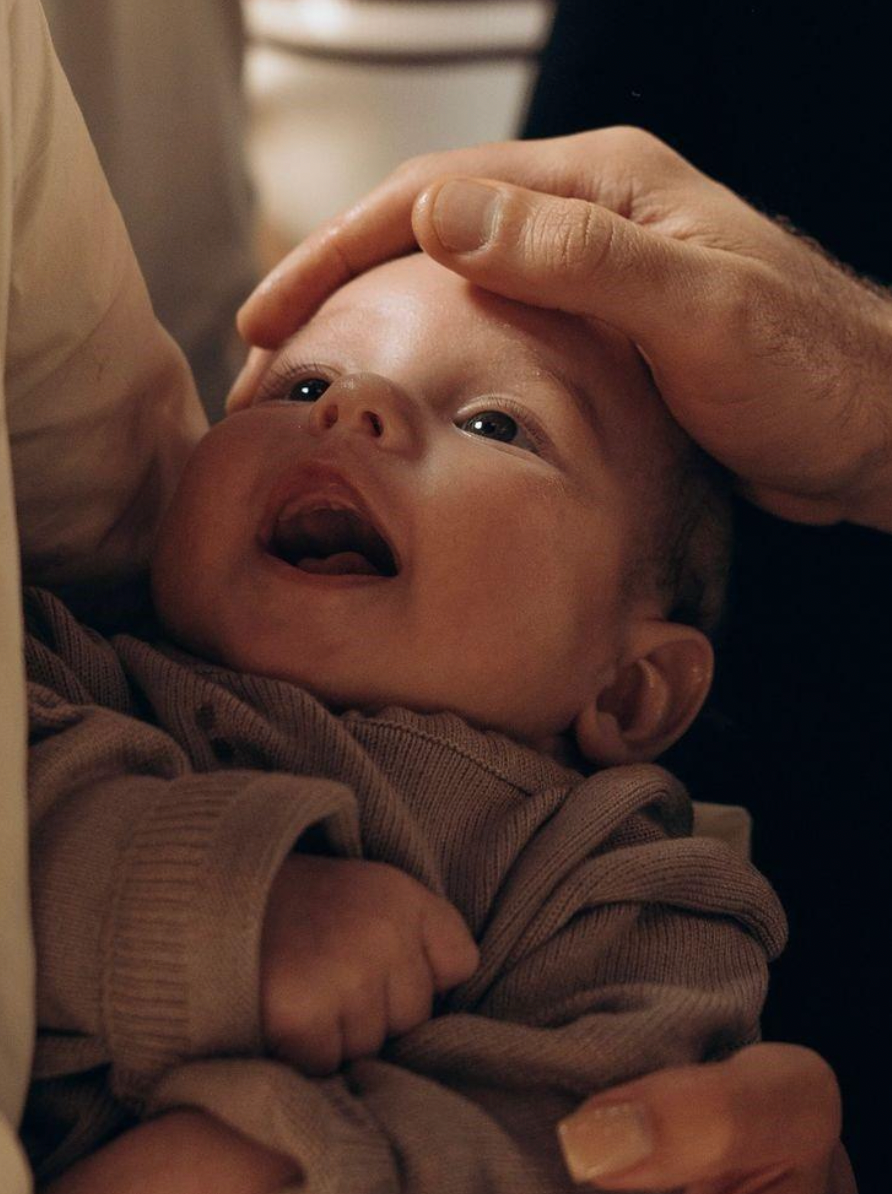
Lactation dip: why it happens (and how to overcome it gently)
Breastfeeding isn't always a smooth ride. After the first few weeks, many mothers notice a decrease in their lactation: baby feeds more often, your breasts seem less tense, you feel tired.
Rest assured: a drop in lactation is neither rare nor irreversible. We know how confusing this time can be, and we've put together some simple advice here to help you regain your confidence and serenity.

💧 1. understanding the causes of lactation decline
Milk production is governed by the law of supply and demand: the more baby sucks, the more the body produces.
However, certain situations can disrupt this virtuous circle:
-
Too long between feeds
-
Stress, lack of sleep or prolonged fatigue
-
A return to work and less frequent feedings
-
Less effective sucking (e.g. if baby has a cold or is distracted)
-
Insufficient hydration or nutrition
These moments of decline are often temporary: the body simply needs a little boost to kick-start production.


🌸 2. The right reflexes to stimulate lactation
💦 Restore feeding frequency
Put baby back to the breast as often as he wants, even at night.
Skin-to-skin contact and close feedings are powerful hormonal stimulators.
🕊️ Relax and unwind
Stress blocks the flow of milk.
Try to create a soothing breastfeeding ritual: a quiet corner, soft music, comfortable clothing.
A soft, discreet nursing top, like those from 23 Mai Paris, can also help you breastfeed serenely in any situation.
One nursing top souple et discret peut aussi aider à allaiter sereinement en toute situation.

🫖 Promote hydration and certain foods
Drink regularly, and vary your diet:
fennel, almonds, oatmeal, brewer's yeast or lactation tea can support lactation.
Avoid restrictive diets: your body needs energy.
🌼 3. Accept natural variations
It's important to know that lactation evolves naturally: the body adapts to baby's real needs.
Softer breasts don't necessarily mean less milk.
What counts is your baby's growth and satiety, not the volume felt.
Trust yourself: breastfeeding also means learning to listen to your own rhythm.

🤍 4. Regain confidence and comfort
Many moms report renewed lactation after simply regaining confidence and serenity.
Surround yourself with support: a midwife, lactation consultant or other moms can help you see things more clearly.
And don't forget: dressing in clothes designed for breastfeeding - soft, practical and aesthetically pleasing - can make a real difference to everyday comfort.
Discover our nursing wear collection conçue pour votre confort au quotidien.
Conclusion
A drop in lactation is often temporary. With a little rest, patience and a few good reflexes, milk production naturally returns to balance.
At 23 Mai Paris, we support mothers at every stage with clothing designed to make breastfeeding a simple, gentle and elegant experience.
If you are breastfeeding, here are some of our nursing clothes that may interest you:
T-shirts d'allaitement
T-shirts d'allaitement imprimés
T-shirts d'allaitement personnalisés
T-shirts d’allaitement basiques
Hauts d’allaitement personnalisables
Pulls d'allaitement
Sweat-shirts d'allaitement
Pulls d'allaitement maille
Débardeurs d'allaitement
Robes d'allaitement
Pyjamas d'allaitement
vêtements d'allaitement
Vêtements de maternité et d'allaitement
Vêtements d'allaitement à ouverture sur le côté
Vêtements d'allaitement grande taille
Vêtements d'allaitement d'été
Vêtements d'allaitement chauds
Vêtements d'allaitement brodés
Vêtements d'allaitement d'hiver
Vêtements d'allaitement confortables
Vêtements d'allaitement en coton
Vêtements de grossesse et d'allaitement
Vêtements d'allaitement originaux
Vêtements d'allaitement pas chers
Vêtements d'allaitement personnalisés
Vêtements d'allaitement en soldes
Vêtements d'allaitement à manches courtes
Vêtements d'allaitement à petit prix
Vêtements d'allaitement à zip
Vêtements d'allaitement abordables
Vêtements d'allaitement amples
Vêtements d'allaitement beiges
Vêtements d'allaitement blanc
Vêtements d'allaitement bleu
Vêtements d'allaitement discrets
Vêtements d'allaitement doux
Vêtements d'allaitement en promotion
Vêtements d'allaitement gris
Vêtements d'allaitement Imprimés
Vêtements d'allaitement jaunes
Vêtements d'allaitement leopard
Vêtements d'allaitement noir
Vêtements d'allaitement rose
Vêtements d’allaitement sobres
Vêtements d'allaitement tendances
Vêtements d'allaitement unis
Vêtements de sport pour l'allaitement
T-shirt allaitement imprimé
T-shirt allaitement personnalisé
T-shirt allaitement coloris uni
T-shirt allaitement manches longues
T-shirt allaitement blanc
T-shirt allaitement bleu
T-shirt allaitement noir
T-shirt allaitement gris
T-shirt allaitement camel
T-shirt allaitement léopard
T-shirt allaitement brodés
T-shirt allaitement coton
T-shirt allaitement zip
T-shirt allaitement été
T-shirt allaitement hiver
T-shirt grossesse allaitement
T-shirt allaitement milk
T-shirt allaitement coeur
T-shirt allaitement pas cher
T-shirt allaitement ouverture coté
T-shirt allaitement discret
T-shirt allaitement confortable
T-shirt allaitement originaux
T-shirt d'Allaitement avec col en V
T-shirts d'allaitement jaune
T-shirts d'allaitement marron
T-shirts d'allaitement multicolore
T-shirts d'allaitement rose
T-shirts d'allaitement rouge
T-shirts d'allaitement unis
Pyjamas d'allaitement
Pyjamas d'allaitement 2 pièces
Pyjamas d'allaitement en promotion
Pyjamas d'allaitement en soldes
Pyjamas d'allaitement leopard
Pyjamas de maternité
Chemises de nuit d'allaitement
Sweat-shirts d'allaitement
Sweat-shirts d'allaitement à ouverture sur le côté
Sweat-shirts d'allaitement en promotion
Sweat-shirts d'allaitement pas chers
Sweat-shirts d'allaitement verts
Sweat-shirts d'allaitement roses
Sweat-shirts de grossesse
Sweat Shirts d'allaitement blancs
Pulls allaitement zip
Pulls allaitement maille
Pulls allaitement laine
Pulls allaitement grossesse
Pulls allaitement chaud
Pulls allaitement pas cher
Pulls allaitement hiver
Pulls d'allaitement ouverture coté
Pulls d'allaitement discret
Robes d’allaitement en maille
Robes d’allaitement chaudes
Robes d’allaitement d’hiver
Robes d’allaitement beiges
Robes d’allaitement longues
Robes d’allaitement courtes
Robes d'allaitement festives
Robes d'allaitement d'été
Robes d'allaitement de vacances
Robes d'allaitement en promotion
Robes d'allaitement noires
Robes d'allaitement pas cher
Robes d'allaitement pour mariage
Robes de grossesse
Robes pull allaitement
If you are only a pregnant mom, here are our maternity clothes:
Black maternity jeans
Gray maternity jeans
Colored maternity jeans
Blue maternity jeans
Cheap maternity jeans
Comfortable maternity jeans
Maternity jeans
Colored maternity jeans
Black maternity jeans
Gray maternity jeans
Blue maternity jeans
Cheap maternity jeans
Comfortable maternity jeans
Maternity pants
Black maternity pants
Gray maternity pants
Colored maternity pants
Blue maternity pants
Jeans for pregnant women
Gray maternity jeans
Blue maternity jeans
Black jeans for pregnant women
Cheap jeans for pregnant women
Comfortable maternity jeans












Leave a comment
This site is protected by hCaptcha, and hCaptcha's Privacy Policy and Terms of Service apply.